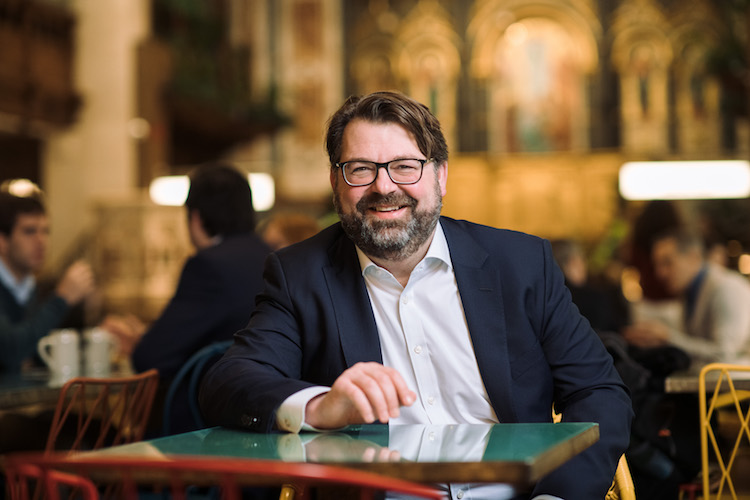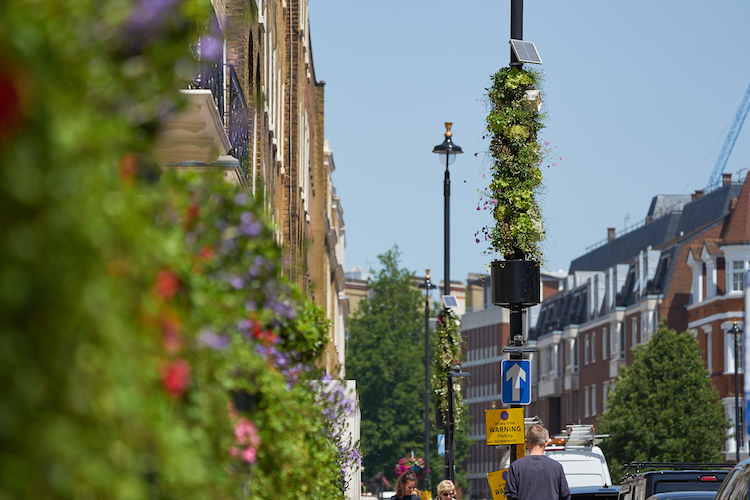Post
#WhenThisIsAllOver | James Raynor | Grosvenor Britain & Ireland
23 Apr 2020
We're asking for thoughts on how London might be affected by the pandemic, the lockdown and their aftermath. We'll be sharing these as they come in, and - once some sort of normality returns - we hope to get together with other organisations and hold a debate to discuss the implications for London of the current situation, the possible effects on how we live and work, and what should be done in the reconstruction phase and beyond.
This is from James Raynor, CEO of Grosvenor Britain & Ireland who says that 2020 will be the year we revalued what’s valuable
The property industry is a core part of the world economy. Valued at $228tn globally, [i] It provides spaces for business to thrive, production to occur and people to shelter and socialise. However, it’s also an industry that has played a part in rising global inequality.
Much of the time we pretend we’re not all aware of this. But we are. It’s just easier not to rock the boat. Yet over the last few weeks, an industry which is often accused of worsening the inequality gap has been tackling these issues, in the UK not least, head on: repurposing buildings, waiving rents, donating cash and making huge volunteering efforts.
During the pandemic, it’s also been interesting to see that the investments proving most resilient are often ESG investments. This isn’t new. Research from 2015 suggested that businesses who invest this way can have up to a 17% increase in profit over the longer term [ii] and the green buildings sector has been forecast to be worth a staggering $25tn. [iii] So the economics are stacking up fast.
What Covid-19 might therefore be teaching us is that companies who excel at sustainability are best placed to adapt to this new world. And make no mistake, significant disruptive scenarios like the ones triggered by Covid-19 will become much more frequent if global warming does not stay below two degrees. The science is clear on that. [iv]
Fundamentally, the coronavirus has shown yet again that economic, environmental and social issues are all inter-linked, and often in positive ways. We are seeing air quality improve as people find new ways to connect with each other that involve less travel. We’re valuing nature and celebrating people who often work the hardest and are yet lowest paid. Is it too much to think we might be starting to revalue what we believe to be valuable?
Last year, Grosvenor committed that every building we directly control will have net zero carbon operating emissions by 2030. All our new buildings will operate at net zero too and we will completely replace gas as a fuel source with renewable energy, while simultaneously finding ways to eradicate waste and enhance biodiversity.
This wasn’t about incremental change. We ripped up our rule book in an attempt to fundamentally transform the way that we operate both our buildings and our business.
Since then, we have launched new green leases, a staff sustainability academy, a supply chain charter and a development brief, and we will be shortly publishing our roadmap to net zero.
Many of our peers are doing the same and we can help each other with an open source approach to sharing solutions to shared challenges. This is collective self-preservation on a grand scale.
Many despaired at the postponement of COP26 in Glasgow. But in fact it presents an opportunity for business to lead this agenda. In the midst of Covid-19, the public sector doesn’t have the capacity right now. We need to step up and develop practical solutions that enable transformational environmental change.
Above all, we need to be investing in a way which drives the UN’s Sustainable Development Goals and addresses the inequality gap that our sector has partly enabled.
That way 2020 would be not just the year of Covid-19 but the year that a $228tn sector started to lead the way in wholescale system change. And in doing so we became known as an industry that works alongside communities, that cares about our planet and a sustainable economy, sharing ideas and being open about the challenges. Now that really would be worth celebrating.
[i] Savills 2017, How much is the world worth?
[ii] Mckinsey and Co, 2017 http://www.kinandco.com/the-business-case-for-purpose/
[iii] Green Buildings, A Financial and Policy blueprint for emergency markets, 2019
[iv] Coronavirus Response Shows the World Is Not Ready for Climate-Induced Pandemics, 2020
WhenThisIsAllOver is the London Society's debate about what the post-virus, post-lockdown world will and should look like. Contributions so far include:
- Chris Williamson | Weston Williamson + Partners | Change is needed
- Clare Richards | ft'work | Local is central
- James Raynor | Grosvenor Britain and Ireland | We need system change
- Freddy Mardlin | London’s Outside Space
- Andrew Beharrell | Pollard Thomas Edwards | Reevaluation
- Amy Warner | Appreciate More
- Mike Stiff | Stiff + Trevillion
- Lord Toby Harris | London will need fresh purpose
- Matt Brown | How should we commemorate the heroes?
- Peter Murray in conversation with Robert Elms
- Prof. Samer Bagaeen | Create a resilient economy
- Neil Bennett | Farrells | High Streets must Act or Die
- Buckley Gray Yeoman | How can design respond?
- Alistair Barr | Bring production back to the West End
- David Morley | There's only one Way
- Chris Williamson | Getting back to work
- Nicholas Falk | URBED | The suburban battle grounds
- Roland Karthaus | Matter Architecture | Institutional architecture in a time of crisis
- Jonathan Manns | Rockwell Property | Planning for #WhenThisIsAllOver
- Daniel Moylan | We need to stop telling people what to do
- Dr Meredith Whitten | We need a green infrastructure
Please give your views in the comments below, or by emailing blog@londonsociety.org.uk

